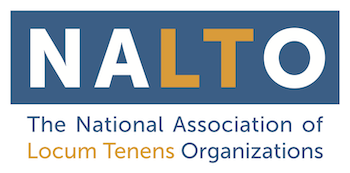One of the many benefits of practicing as a locum tenens physician is that the hassle and expense associated withliability insurance is largely a non-issue since it is an industry standard that locum tenens agencies provide practitioners with insurance. Still, if you are considering practicing as a temporary physician, you must consider certain issues and ask questions to make sure you are well taken care of in this regard.
QUALITY COVERAGE Ask your locum tenens agency recruiter if the firm offers "claims-made" or "occurrence" coverage. Claims made covers you for claims reported during the time the policy is in force. Occurrence covers you for life for claims reported during the time you were covered under the policy. Most locum tenens agencies provide claims-made coverage, in part because occurrence policies were not available for many years. Either type of coverage is fine, as long as you work with a reputable locum tenens agency. Agencies that provide claims-made coverage routinely purchase a special policy ("tail coverage") if they change insurance carriers to ensure that both contracting physicians and the company are not subject to liability.
A locum tenens agency should cover you under its group policy at a limit that meets the minimum requirements for the hospital and state in which you will be practicing. Typically, agencies purchase policies for $1 million/$3 million, which means you are covered for claims up to $1 million per incident, with $3 million in aggregate coverage for the policy year. Make sure that the firm you work with provides coverage through an insurance carrier rated "A" or better by A.M. Best.
Because your locum tenens agency handles the paperwork related to liability insurance coverage, you need to request a copy of the certificate of insurance for your file. Having this document handy will be helpful as you apply for licenses and medical staff privileges for subsequent engagements, as each application will request information on previous insurance coverage.
AN OUNCE OF PREVENTION
You can protect yourself from liability while on location by requesting an orientation, asking questions, and erring on the side of caution. If the facility does not offer a formal or informal orientation on your arrival, ask if someone can show you the ropes. You may be using unfamiliar electronic medical record systems, equipment, and even supplies, and an orientation will save you time and help you deliver the best patient care possible.
As a locum tenens physician, you are "the new doc" over and over. Naturally, you will not know everything about the clinic or hospital you are practicing in on day one. When in doubt, ask for guidance from your supervising physician, a nurse manager, or an administrative liaison.
Without going overboard or practicing ultra-defensive medicine, take extra care when ordering tests and procedures, documenting in the medical record, and especially conducting your bedside manner. Keep a close eye on things as you order lab, imaging, or other studies until you are certain that the facility has an ironclad system in place for making sure those results are returned in a timely manner. Be meticulous with your documentation and record "just the facts." Since you are not a patient's "regular" doctor, you will need to go the extra mile to demonstrate competence and compassion to instill trust and confidence in the people you care for. If you have a good rapport with patients—even those you see only once—they will be less likely to call their lawyer if their outcome is less than perfect.
If you arrive on location and feel that the environment is in any way unsafe or does not provide quality patient care, notify your locum tenens agency recruiter immediately. If an untoward event occurs while you are on location (even if you are only peripherally involved), report it right away to your recruiter. You may be referred to a risk-management specialist within the firm, so be prepared to speak with someone new under these circumstances. And then relax—the agency will notify its insurance carrier and handle the situation from there.
Speak with your National Association of Locum Tenens Organizations agency recruiter if you have further questions about risk management related to locum tenens. Better to ask and know than to assume and be unpleasantly surprised.
Views and opinions expressed herein are those of NALTO and not necessarily those of Advanstar Communications Inc. or LocumLife.
About the Author
Karen Childress is a Colorado-based freelance healthcare writer currently crafting a series of articles on behalf of NALTO.
